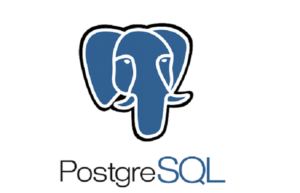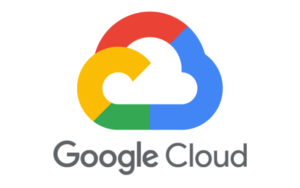
Google Cloud Launches New Postgres-Compatible Database, AlloyDB

Google Cloud today unveiled AlloyDB, a new database designed to deliver the high-end performance and reliability features that enterprises demand while maintaining compatibility with the open source PostgreSQL database API.
PostgreSQL has emerged as the database standard for enterprise workloads over the past few years, according to Andi Gutmans, the vice president and general manager of databases at Google Cloud. The company’s own Cloud SQL for PostgreSQL offering is doing very well, as are the company’s “transformative” database offerings, Cloud Spanner, BigTable, and FireStore.
However, what was missing from the database equation was a hosted PostgreSQL offering that could deliver a the sorts of high-end database capabilities that customers have come to expect with Oracle RDBMS, IBM Db2, and Microsoft SQL Server, he said.
“The piece that we were really missing to best support our customers on this journey was providing a PostgreSQL compatible database, because PostgreSQL is the best migration target for Oracle, SQL Server, and Db2 workloads, just because of the feature completeness it has from an enterprise perspective,” Gutmans tells Datanami. “But then really make sure that we address things like security, performance, scalability, manageability, and reliability that customers, especially when they’re coming from the very high-end databases, really, really need.”
In AlloyDB, Google Cloud is delivering those high-end database features while maintaining the PostgreSQL features and compatibility that customers demand. The company did that, Gutmans said, by essentially rewriting the lower half of the database to use the company’s unique storage and compute offerings, called Colossus and Borg, respectively.
“When you start to get into the very high end database workload that have the highest levels of transactions and the highest level of availability, we recognized that we actually have to innovate more on the PostgreSQL engine to really get it to the level that the highest end database workloads needed, and that’s what AlloyDB does,” Gutmans explained.
“With AlloyDB, the goal is to be 100% compatible with PostgreSQL, but bringing the best of Google, bringing the compute and storage disaggregation that is very unique to Google,” he continued.
The company didn’t rewrite everything closest to the infrastructure in PostgreSQL, Gutmans said. There are still elements that are open source.
“But to really get to the capabilities of the highest end databases, like Oracle, where we deliver the four 9s of availability…the highest transaction performance…we had to do some significant heart surgery in PostgreSQL to really make sure that happens,” he said. “And because we leverage Google’s very special secret sauce, it is very, very intertwined with our infrastructure.”
Rewriting the innards of PostgreSQL enabled Google Cloud to boost its performance. According to Gutmans, Google Cloud benchmark tests show AlloyDB can handle four times more transactions than open source PostgreSQL. It’s twice as fast as AWS’s comparable PostgreSQL engine, he said, and delivers a 100x speedup on analytical queries compared to open source PostgreSQL.
While Google Cloud isn’t publicly releasing those benchmark results, the public should have faith that they were done accurately. “We are extremely conservative [on] benchmarks,” Gutmans said. “We definitely don’t make bold proclamations unless we can stand behind them.”
Because it supports Google’s special sauce, AlloyDB won’t be made available to open source, although there are certainly elements of it that may be, Gutmans said. “I think you should definitely expect that there’s going to be some open source contributions coming out of this team,” he said.
Maintaining 100% compatibility with the latest release of PostgreSQL, version 14, will enable customers to “lift and shift” their PostgreSQL workloads to AlloyDB, he said. Not only is it fully compatible at the API layer, but more than 50 PostgreSQL extensions, including PostGIS, is also compatible with AlloyDB, he said. The software was also developed in a way that will ensure compatibility in future releases, he said.
With AlloyDB offering high-end PostgreSQL experience, Cloud SQL offering a basic PostgreSQL service, and Cloud Spanner providing a unique global database offering that also now is compatible with PostgreSQL, Google Cloud is “tripling down” on PostgreSQL, Gutmans said.
“We want to be the best place in the cloud for PostgreSQL, whether that’s managed open source with Cloud SQL, whether it’s differentiated high-end Postgres compatible workloads on AlloyDB, or if it’s the Postgres interface to Spanner, which is really for these always on global applications,” he said.
Related Items:
Google Cloud Spanner Gets Change Streams
Google Cloud Gives Spanner a PostgreSQL Interface































